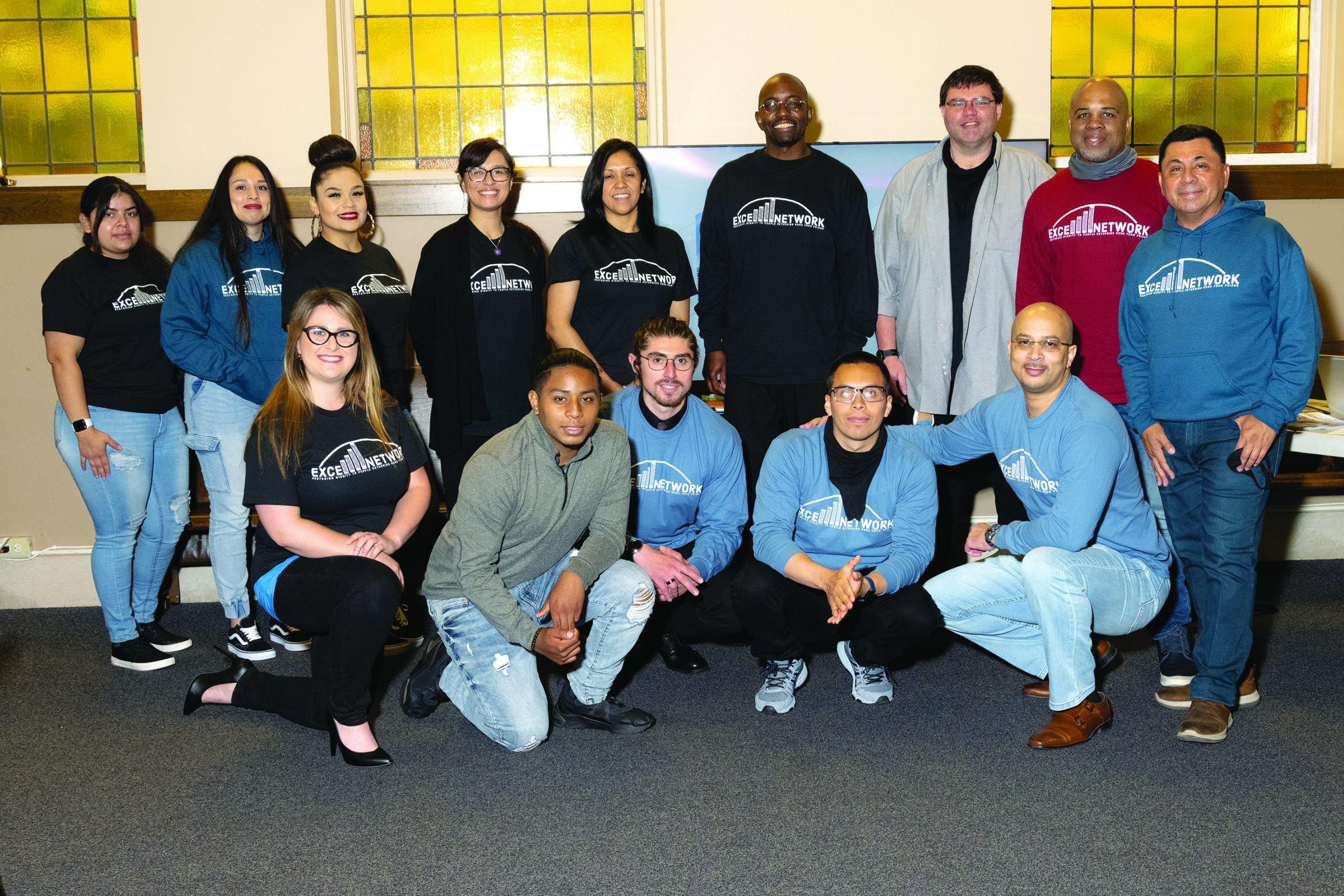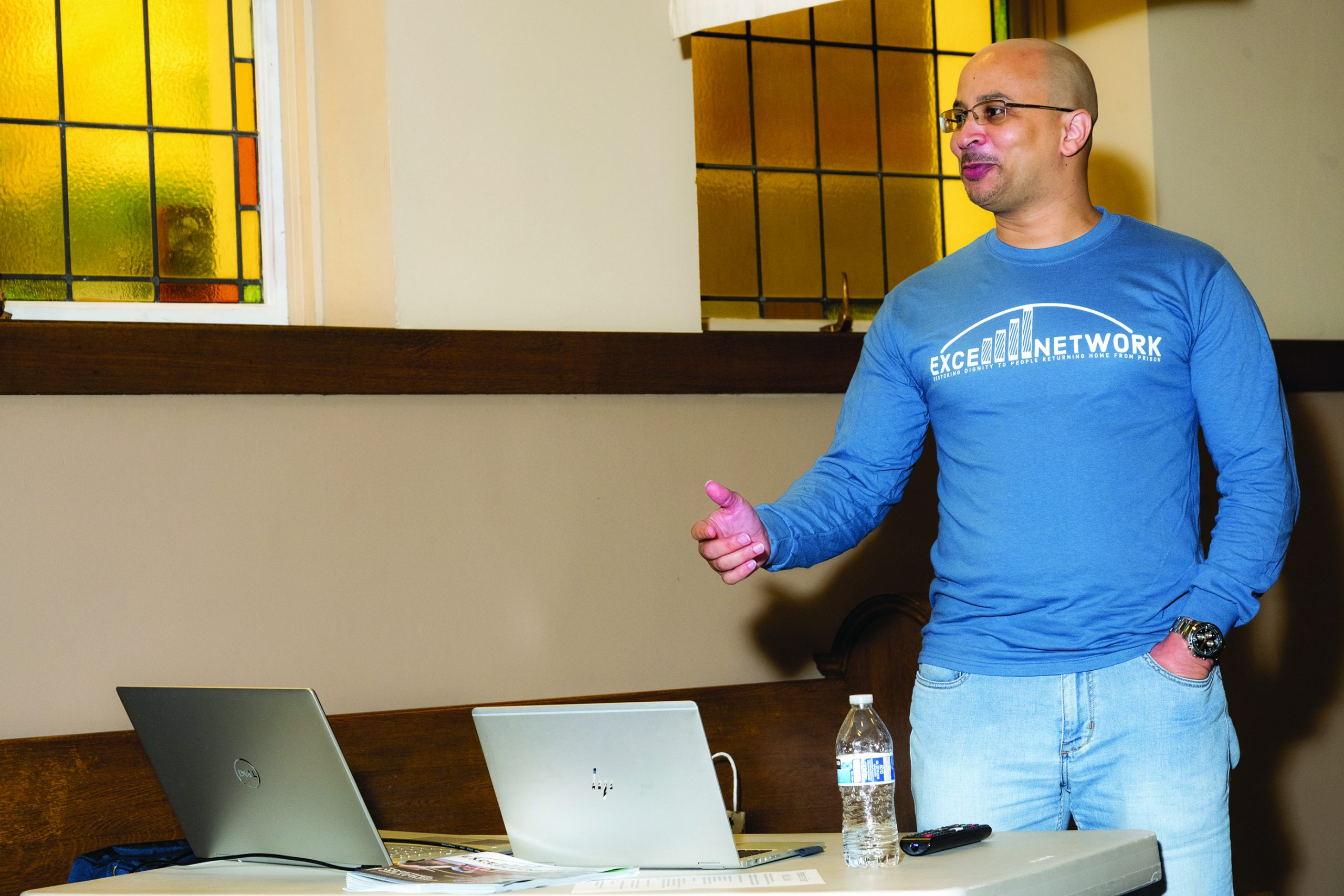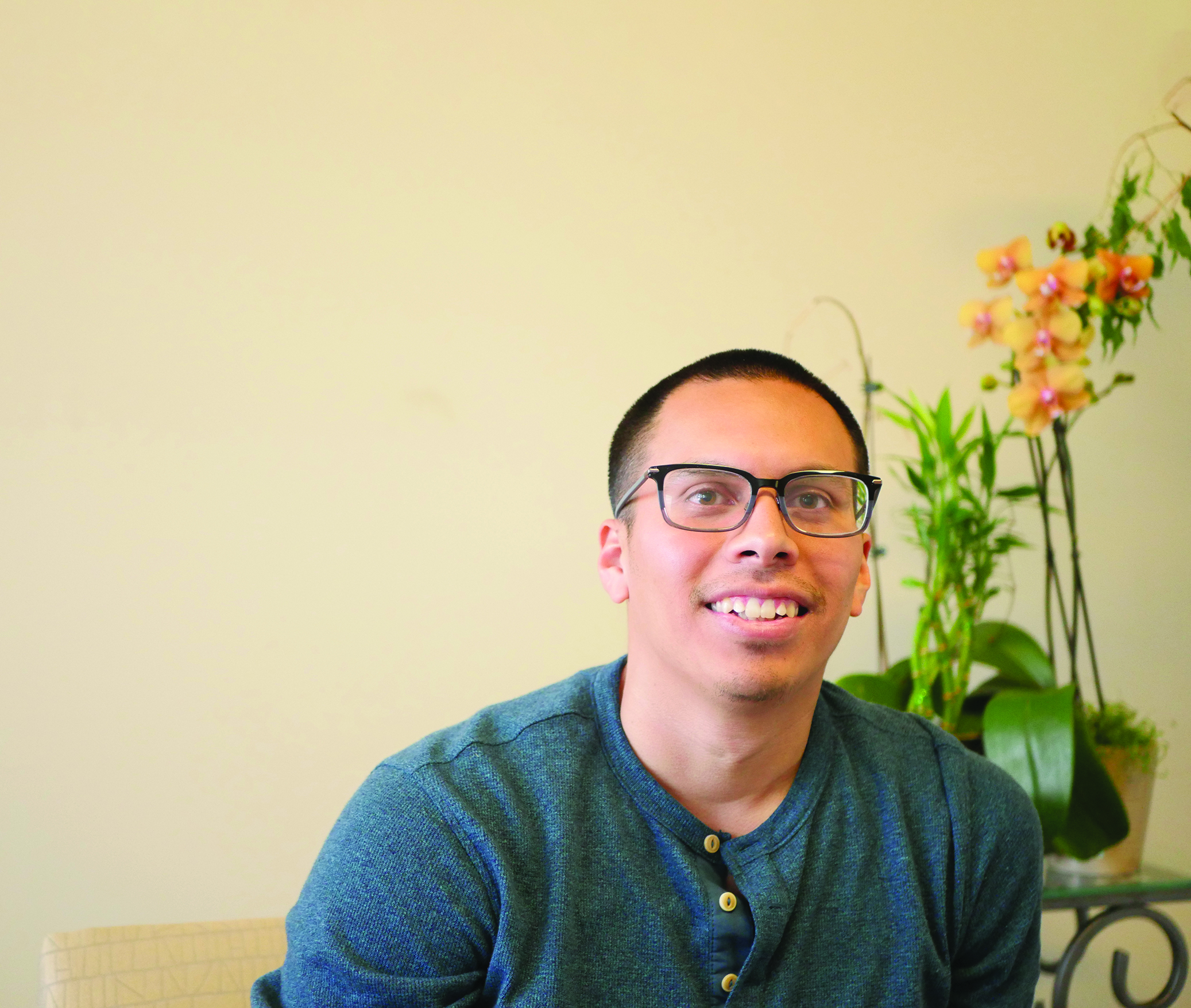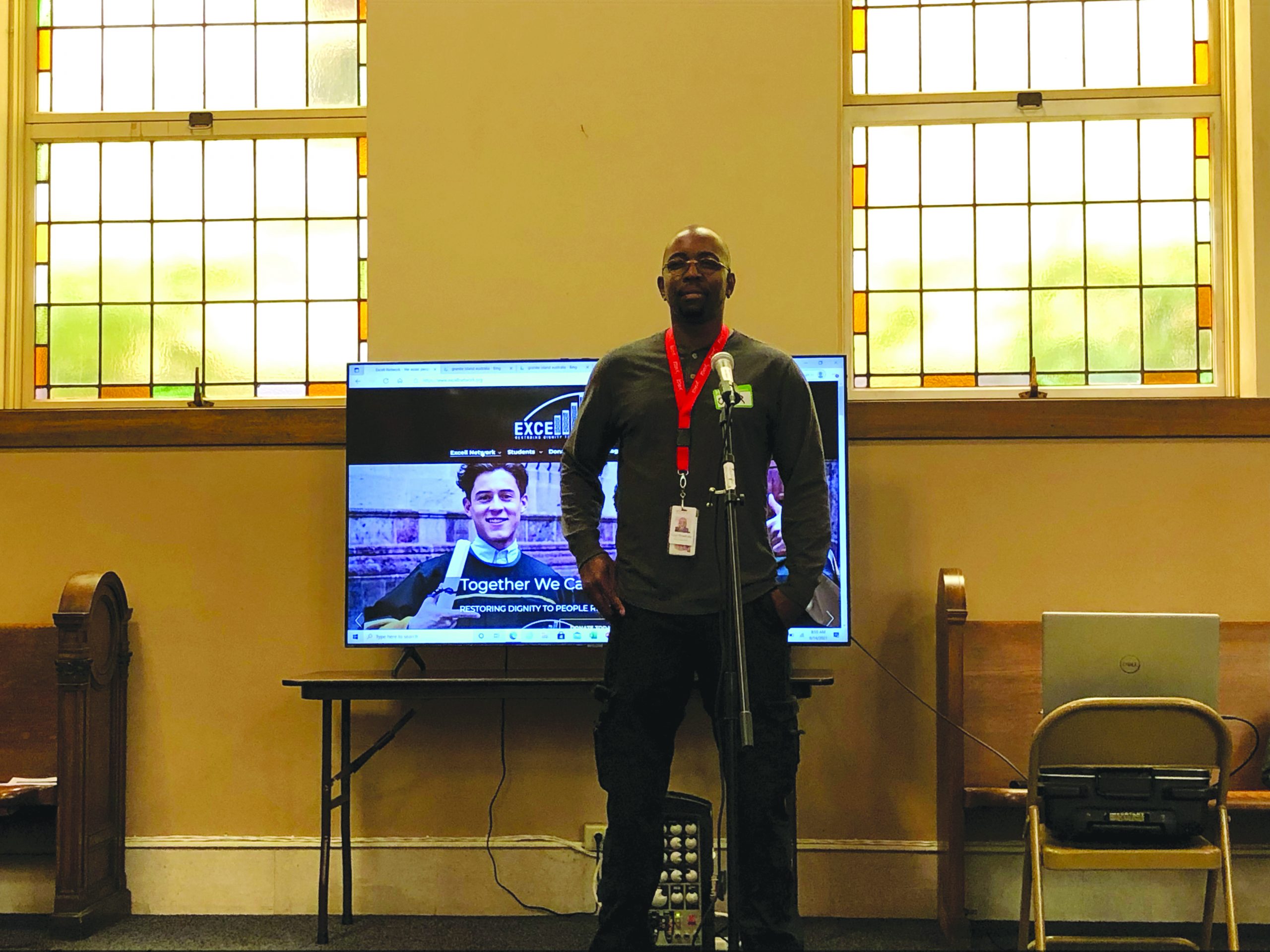Scholarships, mentoring offer way back for formerly incarcerated
BY DEACON DANA PERRIGAN
When Jessy Martinez got out of prison two years ago, his plan was to make a new life for himself based on self-improvement, community and love. But if the oddsmakers in Las Vegas were making book on his chances of succeeding, they wouldn’t have been good: The rate of recidivism for men and women leaving state prisons, according to a study by the California Innocence Project, is among the highest in the nation. More than 65 percent wind up back inside after three years.
Martinez grew up in a rough neighborhood in Southern California’s San Fernando Valley. Like a lot of kids in the neighborhood, he joined a gang. He was shopping for clothes with a couple of his buddies in a mall one day. One of them mouthed off to some other youths. When things heated up, his other buddy pulled a gun and shot two of them. Convicted under the laws in place at that time designed to prosecute gang violence, Martinez – then 16 – received a 100-years-to-life sentence.
A successful appeal for a new trial and a deal resulted in a lesser sentence. Fifteen years later – after having spent half his life behind bars – Martinez walked out of prison.
“I never believed that I belonged in prison,” he says. “I never believed that I would die there.”
Martinez also never believed he would go to college. He had earned his GED certificate while in prison, but the thought of reaching any higher generated a lot of self-doubt. (The GED, for General Educational Development, is equivalent to a high school diploma.)
“No one in my family had ever gone to college,” he says, “and I didn’t think someone like myself – who had been in prison and didn’t have money – could attend college.”
Martinez knew that if he were going to do it, he would need help. He found it in a relatively new program called Excell Network. Excell Network is associated with the Archdiocese of San Francisco, which oversees the scholarship program and funding. Archdiocesan Restorative Justice Coordinator Julio Escobar designed and oversees the program, assisted by staff of the Office of Human Life & Dignity and support from the archdiocesan finance department.
Dedicated to helping formerly incarcerated men and women reach their educational and career goals, Excell Network offers, in addition to a scholarship stipend, an array of services – orientation, workshops on health and nutrition and time management, and spiritual support. It also provides a link to crucial resources such as housing and employment.
“Our approach is the same as the father in the parable of the prodigal son,” says Escobar. “We’re helping people change their lives and getting them the resources they need to do that.”
The archdiocesan restorative justice ministry works closely with Excell, which was founded in September 2020 by Escobar and is dedicated to helping adults on parole and probation build new lives.
The actual scholarship stipends are from a renewable $22,500 annual grant from the U.S. bishops’ Catholic Campaign for Human Development, which has as its goal empowering those who are poor and disenfranchised to become independent contributing members of society. In addition to the staff and infrastructure from the archdiocese, which are funded through the Archdiocesan Annual Appeal, Excell Network sells T-shirts, sweatshirts and other merchandise on its website (excellnetwork.org) and at its monthly breakfast meetings. It also offers subscriptions to its quarterly magazine, which contains profiles of students in the program.
“We invest in them,” says Escobar, “and they become productive citizens.”
Currently, 25 students are in the program. Many say one of Excell Network’s most valuable roles is fostering a sense of community through its retreats and monthly breakfast meetings. The students support one another in their struggle – often in very challenging circumstances – to create positive and productive lives.
“It’s very powerful,” says Martinez. “It motivates me knowing that I have a support network – a network of friends who are positive, who I can call on. We share stories and help each other.”
“It’s more than just the financial support,” says Bobby Jones-Hanley. “It’s having a network of people that you can call on to help you deal with school, personal problems, making a resume, filling out forms.”
A former Excell student, Jones-Hanley took some time off from school to create his own nonprofit, Pure1, which launched Jan. 20. Its mission, he says, is to help reentry and homeless people gain financial stability through fast-track career development programs, with support and collaboration from key service providers. Jones-Hanley now serves as an Excell Network volunteer.
Excell Network student John Cunningham Jr. says the experience of reentering society after years in prison can be frustrating. Navigating the often-confusing process of enrolling in college, in addition to finding a job and a place to live, can seem daunting.
“Education is key,” says Cunningham, who is scheduled to graduate from San Francisco State University in the fall of 2022. “But you have to have a great support system because it can be overwhelming.”
In addition to attending college, Cunningham works as a facilitator, workshop coordinator and supervisor at Rubicon Programs, a nonprofit headquartered in Richmond, whose mission is to break the cycle of poverty in East Bay communities.
“Excell Network has been a great experience,” says Cunningham. “It’s not only helped me, but it’s allowed me to help others. It’s also helped me by opening up opportunities for me that otherwise I would never have experienced.”
Cunningham recently completed an internship in the Willie L. Brown Fellowship program, in which he worked directly with Shamann Walton, president of the San Francisco Board of Supervisors, on the project tasked with reinventing the city’s juvenile justice system.
A common characteristic among Excell Network students, says Escobar, is a willingness and desire to help others.
Not long after being released from prison, Lilliana Gonzalez started working at Hospitality House in the Tenderloin in San Francisco. As a case manager in the employment unit, she assists those who are experiencing homelessness find work. She helps them with resumes, cover letters and applications. Her own experience of needing help, she says, makes it easier for her to understand and aid her clients.
“I love my job,” she says. “I love helping people.”
When he was released from prison three years ago, Omar Breedlove decided to go to college and work. After graduating from City College of San Francisco with an associate degree in behavioral sciences, he was accepted into a highly competitive social work academic program at San Francisco State University. While going to school, Breedlove works as a peer counselor with RAMS (Richmond Area Multi-Services), which contracts with the San Francisco Department of Public Health to do street outreach. Responding to nonviolent 911 calls, Breedlove occasionally encounters some of the same people he used to hang out with.
“My life has become useful,” he says. “It has purpose.”
So, says Martinez, has his. The young man who didn’t think he would be able to go to college is now a student at San Francisco State University. He also works part time as a peer case manager in the University of California, San Francisco’s Citywide Case Management Program, helping clients navigate the course of their treatment and recovery.
“It’s therapeutic,” says Martinez. “When I was young and going through a lot, I wished that I had a mentor, someone I could talk to and give me guidance. I never had that. Now, I tell myself that I could be that for someone else.” ■






Dana Perrigan is a Deacon of the Archdiocese of San Francisco and Restorative Justice Ministry volunteer.

